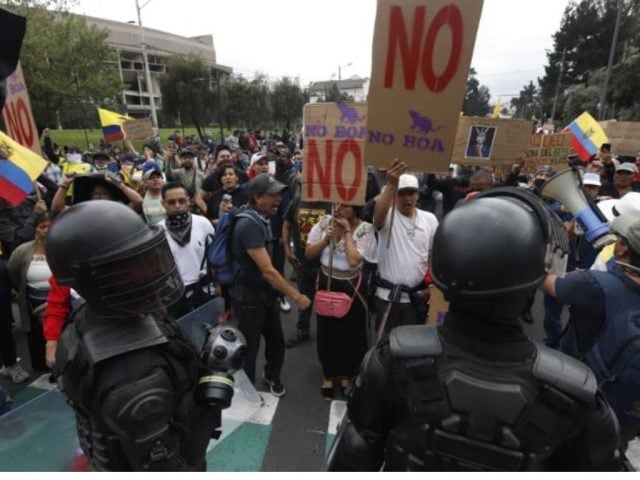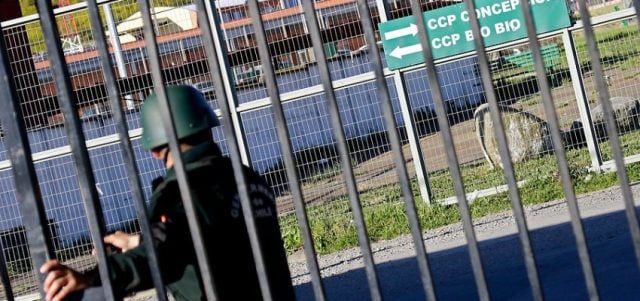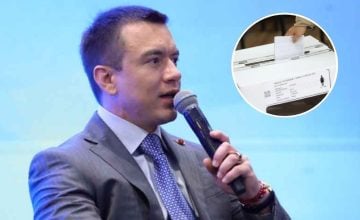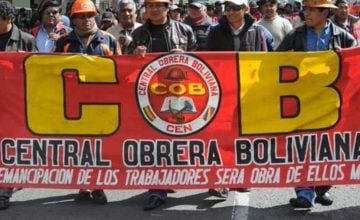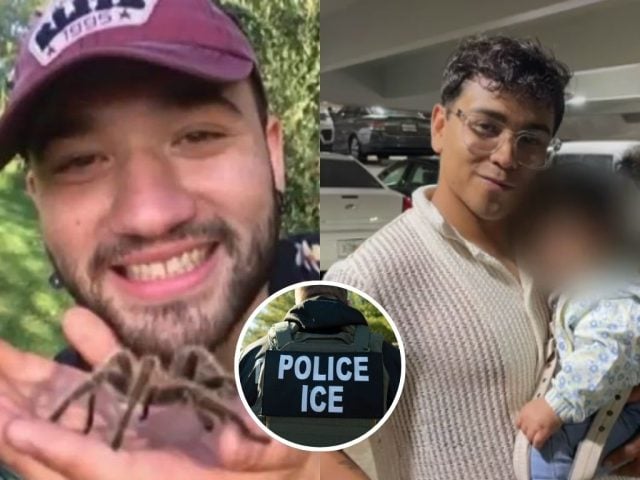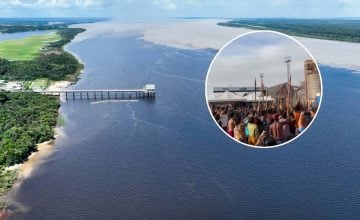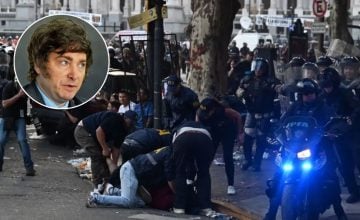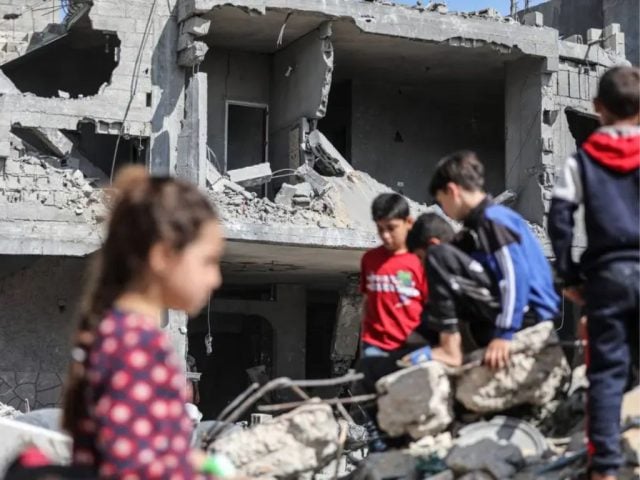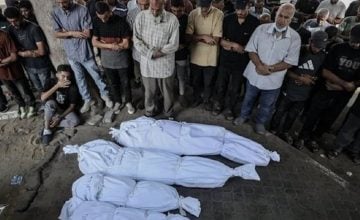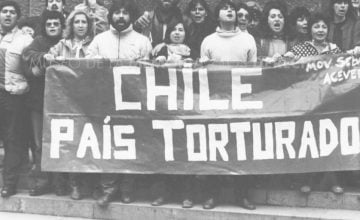Since the nationwide strike over the removal of Ecuadors diesel subsidy began, 118 people have been detained across 21 days of protests, while events marking Indigenous Resistance Day drew allegations of a government crackdown under Daniel Noboa.
According to Interior Ministry data, 107 of those detained are adults and 11 are minors. Police records indicate that 108 are men and 10 are women.
Authorities also reported that 108 detainees are Ecuadorian nationals and 10 are foreign citizens; two of the latter have already been deported to their countries of origin.
In addition, 24 people remain in pretrial detention and another five are still awaiting hearings to determine their status, Radio Pichincha reported.
Meanwhile, 42 people were released by court order and 49 are under alternative measures.
According to the Confederation of Indigenous Nationalities of Ecuador (CONAIE), the nationwide mobilization that began on September 22 will continue until Executive Decree 1264which scrapped the diesel subsidy4is repealed.
The measure has driven the price of diesel sharply higher, from $1.80 to $2.80 per gallon, directly increasing transportation costs, agricultural production expenses, and household budgets4especially in Indigenous and rural communities that rely on diesel for work and mobility.
Rather than open channels for dialogue, the right-leaning president has responded with force, deploying the Armed Forces across Ecuadors streets. Over 21 days, there have been 118 detentions, hundreds of injuries, and one death4Kichwa leader Efran Fuerez, reportedly at the hands of army personnel.
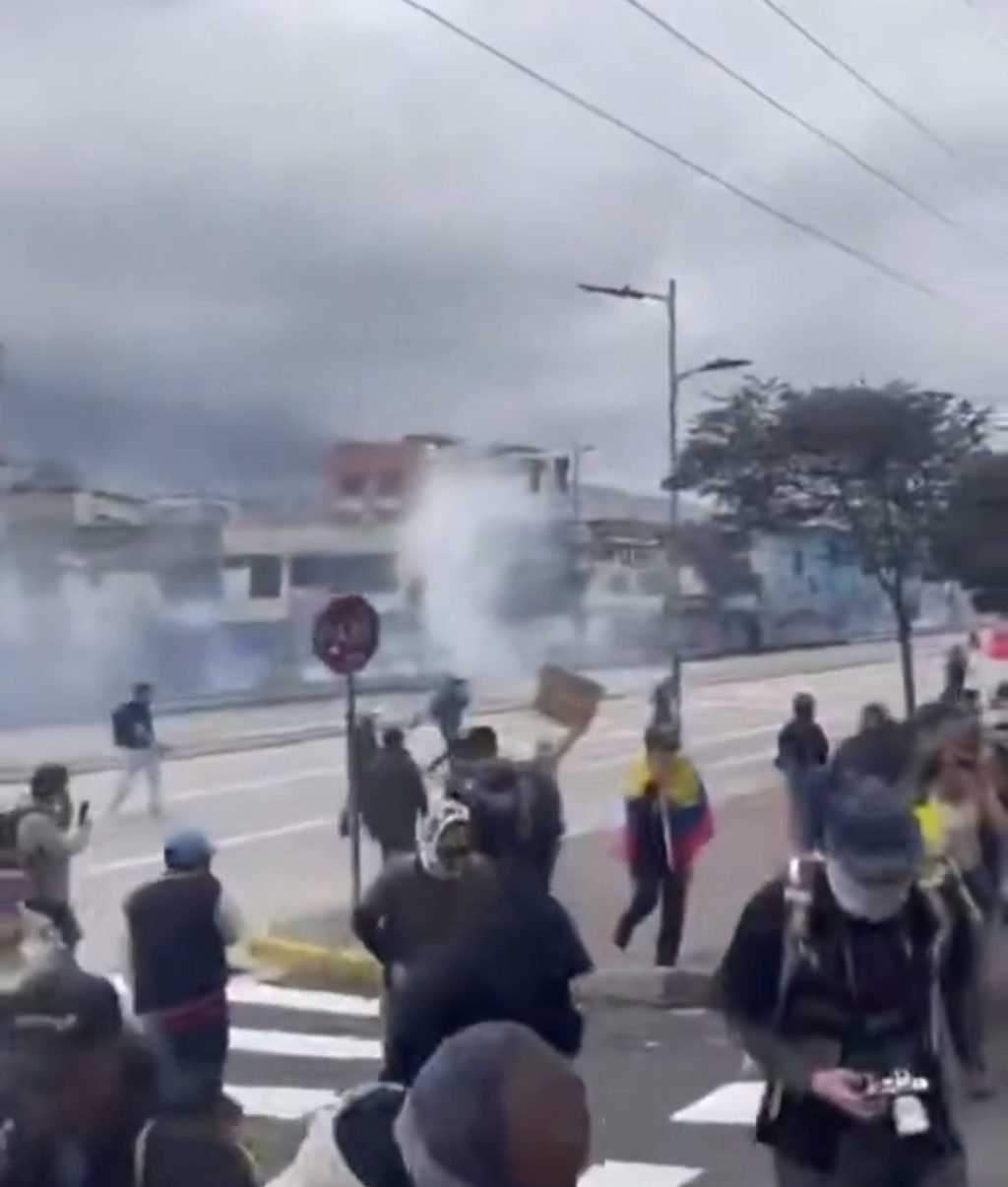
Crackdown on Indigenous Resistance Day
During the Indigenous Resistance Day activities, police repression ordered by Noboas administration was reported.
I denounce that the Government blocked the gathering and stopped the peaceful march by social sectors and citizens in Quito. The military and police acted violently from the outset, immediately repressing even children and entire families, said CONAIE president Marlon Vargas in a post on X.
This conduct reflects a warmongering policy that rejects dialogue and criminalizes protest. Repression does not bring peace; it only deepens outrage and strengthens the peoples resistance, he added.
From early in the day, soldiers surrounded rally points and closed access roads into Quito. They cited presidential Decree 174, which, amid the national strike, declared a state of exception in the provinces of Pichincha, Cotopaxi, Tungurahua, Chimborazo, Bolvar, Cañar, Azuay, Orellana, Sucumbos, and Pastaza.
Radio Pichincha reported that during a peaceful gathering on Sunday in El Ejido park, in the north-central area of Quito4attended by children, adults, retirees, and members of social and Indigenous organizations to protest the governments economic measures, especially the removal of the diesel subsidy4there were acts of repression by the army.
Along the route, security forces fired large quantities of tear gas to disperse the demonstration, despite the presence of children and older adults. Police even rode motorcycles into the park to continue the crackdown, the outlet said.
After the clashes, dozens of demonstrators sought refuge inside the Benjamn Carrin House of Culture.
The institution condemned the National Polices use of tear gas inside its facilities in Quito and warned that the action endangered heritage assets in its custody and the safety of people inside the building.
At the same time, in protests held in the Pasteurizadora sector, at the entrance to Monjas, and along 6 de Diciembre Avenue, demonstrators carrying flags and signs against the right-wing governments policies fled amid clouds of tear gas launched by security forces.
Police fired tear gas even though there was no provocation or violence by demonstrators, Radio Pichincha said.
At Parque El Arbolito in the south of Quito, officers from the National Police and Armed Forces tried to halt the demonstrators advance.
Edwin Bedoya, president of the Unitary Workers Front (FUT), criticized the heavy police and military deployment in Ecuadors capital ordered by Daniel Noboa.
As (Nelson) Mandela said, when the military are in the streets, its because a government is on its way out, he said.
He questioned the deployment of thousands of officers to contain a peaceful mobilization instead of fighting crime.
They tell us its to safeguard our security, but we are in an open space, with no decree prohibiting it, he told El Universo.
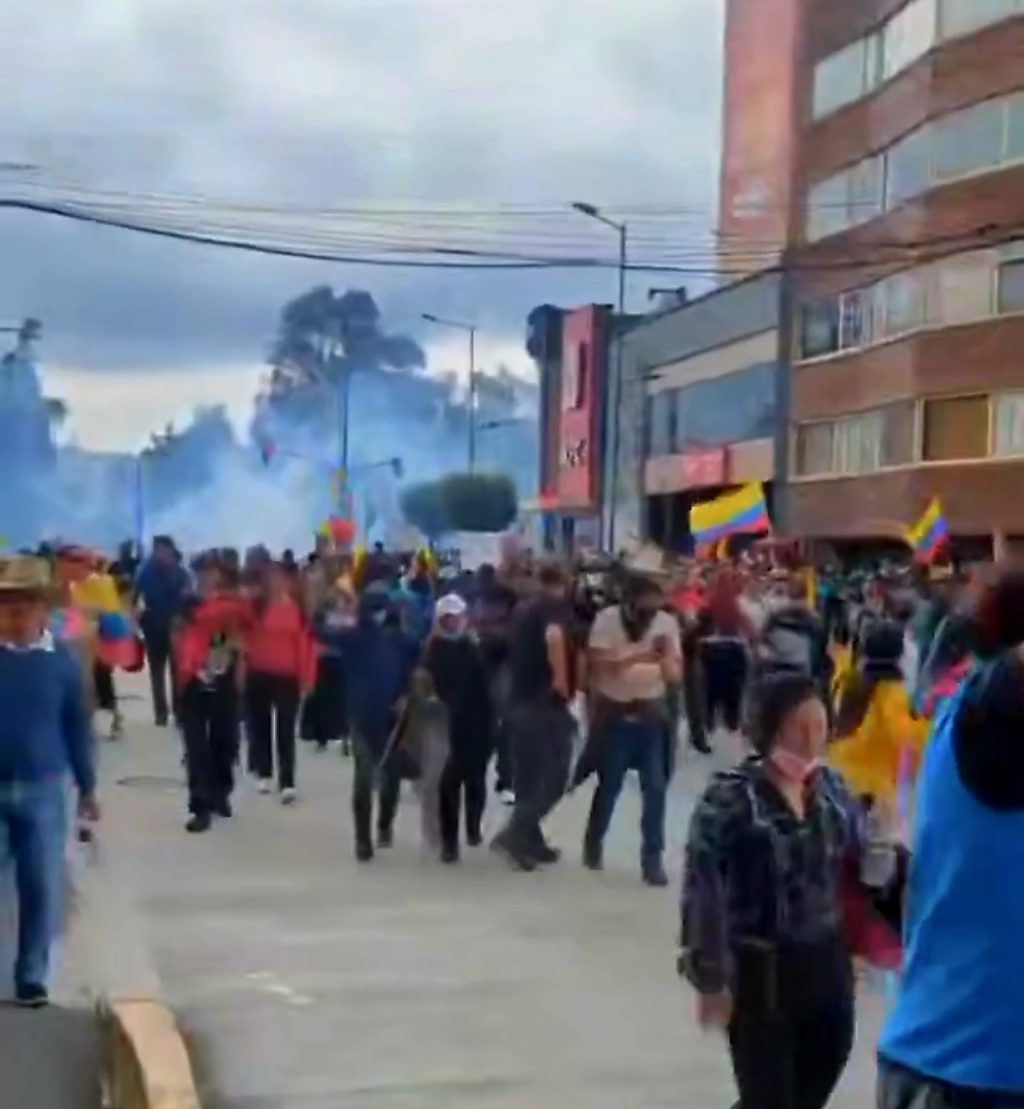
Bedoya said the mobilizations will continue and argued that public grievances have moved beyond the elimination of the diesel subsidy.
Its no longer just the diesel price hike; its the disregard for freedom of expression and freedom of assembly, he said, also alleging abuses against Indigenous leaders and demonstrators. He called on international organizations, such as the UN and the ILO, to mediate a genuine dialogue with the government.
There has been no dialogue since this government took office. What we are living now is a tyranny that persecutes those who think differently, the union leader emphasized.
*Featured photo: Expreso
